Jag heter Nils Ewald, och är en av de senaste tillskotten i Black Soldier Fly-gruppen på institutionen. Under hösten kommer jag göra mitt examensarbete som en avslutning på Agronomprogrammet i Livsmedelsvetenskap här på SLU. Som livsmedels-student känns det väldigt intressant att få arbeta med insekter som mat och foder, ett ämne som diskuterats flitigt på sistone. I mitt arbete kommer jag analysera fettsyror i fluglarverna, och det foder som vi ger dem (till exempel matrester). Målet är att se hur fettsyrorna i fodret påverkar fettsyrorna i fluglarverna.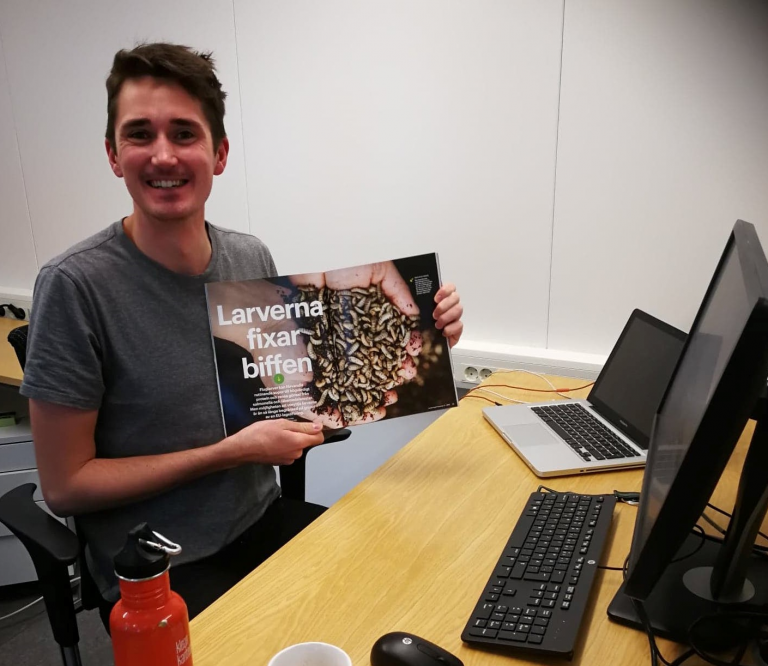
Author: Prithvi Simha
New Masters project on fatty acid composition in BSF larvae and substrates
I’m Nils Ewald, one of the latest master students to join the Black Soldier Fly team at the department. I’m currently doing my last year at the Agriculture program in Food Science here at SLU. As a student in food science it is very interesting to be able to dig into the widely discussed field of insects as food and feed. During the autumn I will investigate the fatty acid composition in the BSF larvae, as well as the substrates (such as food waste) they are reared upon. The aim is to see how the fatty acids found in different substrates affects the fatty acid composition in the fly larvae.
Environmental Engineering group hosts Professor Christine Moe
The Environmental Technology group was pleased to host Christine Moe, Gangarosa Professor of Safe Water and Sanitation at Rollins School of Public Health, Emory University, USA. During her visit, 3-4th of September 2018, Christine met the researchers and PhD students in the group and discussed potentials for future collaboration in research and education with sanitation sector. Christine also held a lunch seminar where she presented her research finding regarding “Examining Exposure to Fecal Contamination in Low-Income Urban Environments: Findings from the SaniPath Exposure Assessment in Seven Cities”. Christine’s visit came within the framework of the project “Microbiological and pharmaceutical risks from reuse of wastewater streams and products in agriculture, MPR-WST-agri”. MPR-WST-agri was funded in 2017 by the Swedish Foundation For International Cooperation In Research And Education- STINT. The project is led by Sahar Dalahmeh, a researcher in the group. 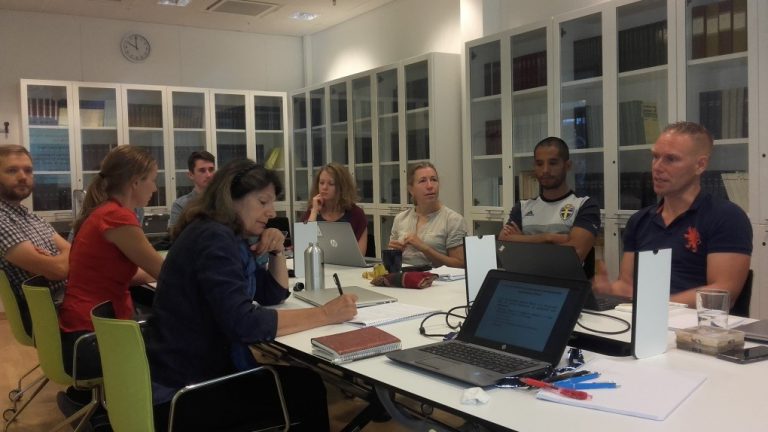
Implementation of demonstration biochar filter for small-scale sewage treatment funded by Swedish EPA
The Swedish Environmental Protection Agency decided to grant Sahar Dalahmeh, a researcher at the Swedish University of Agricultural Sciences, 475 000 SEK to implement demonstration biochar filter for Small-scale Sewage Treatment”. The project intends to scale the laboratory system to full scale module to treat single- household wastewater. Within the project, system’s function and treatment ability as well as outgoing water quality will be evaluated. The Projects period is August 2018-July 2019.
Demonstrations biokolsanläggningar för småskalig avloppsrening finansierades av Naturvårdsverket
Naturvårdsverket beslutade att bevilja Sahar Dalahmeh, forskare på Sveriges Lantbruksuniversitet 475 000 kronor för projektet “Demonstrationsprojekt av biokolsanläggningar för småskalig avloppsrening”. Projektet avser att skala upp laboratoriesystemet till full skala modul som behandlar avloppsvatten avsende övergörande ämne och mikroföroreningar. Det som utvärderas är systemets funktion och behandling förmåga samt utgående vatten kvalité. Projektsperiod är September 2018- juli 2019.
What does the term ‘ecotechnology’ mean?
In 2015, the term ‘ecotechnology’ was used as one of the themes for a funding call by the joint Baltic Sea research and development programme BONUS. The call defined areas where ecotechnologies could be applied, but did not explicitly define the term itself. Against this backdrop, researchers including Jennifer McConville from our group decided to systematically review the literature on the use of the term ‘ecotechnology’ to inform the future work of the BONUS RETURN project. Many articles simply use the term as a “buzzword” without offering a definition of the term. However, the review found 49 articles with explicit definitions. These definitions contain a variety of embedded concepts for describing the types of technologies, the benefits and the processes that can be seen as ecotechnologies. We clustered these concepts into a conceptual framework that we feel captures the multiple perspectives represented in the term ecotechnology. Note that several of these concepts may be in conflict with each other. This framework is offered as a starting point for discussion around a possible common vision of ecotechnology, or at a way for authors to be transparent about the concepts embedded in their use of the term. On the basis of this review the author propose the following definition for use in the BONUS RETURN project: ‘‘Eco-technologies are human interventions in socialecological systems in the form of practices and/or biological, physical, and chemical processes designed to minimise harm to the environment and provide services of value to society’’ 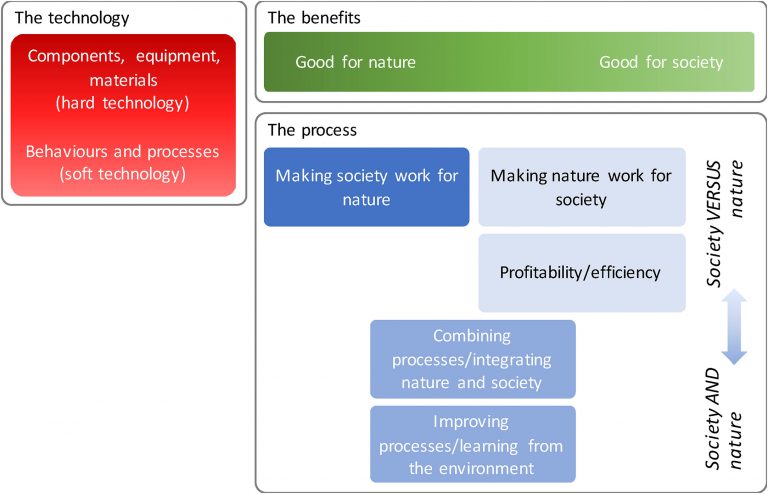
Summer School Insects as Food and Feed
Last week, Viktoria Wiklicky from our research group participated in the Summer School “Insects as Food and Feed – from producing to consuming” organised by Wageningen University. The summer school looked at various aspects of the insect food and feed chain, from from genetics to farming, handling/logistics, processing, marketing and consumption. The course was very well received by its participants, many of whom almost bombarded the lecturers with a range of interesting questions! One highlight was the study visit to Belgium where participants spent a whole day at the Thomas More University of Applied Sciences and the University of Leuven, receiving lectures and a tour through the research facilities, with focus on their ongoing insect projects. 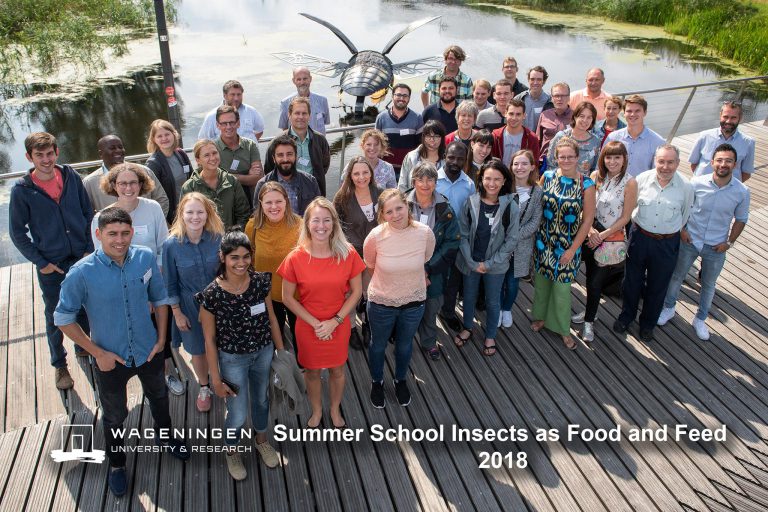
The 6th Dry Toilet Conference, Finland
Prithvi Simha, PhD student at kretsloppsteknik, participated in the 6th International Dry Toilet Conference that was held in Tampere, Finland, between 22-24 August. Prithvi presented our ongoing research on alkaline urine dehydration technology and shared experiences of installing & operating a household-scale urine dehydration unit for three months at the SLU campus. 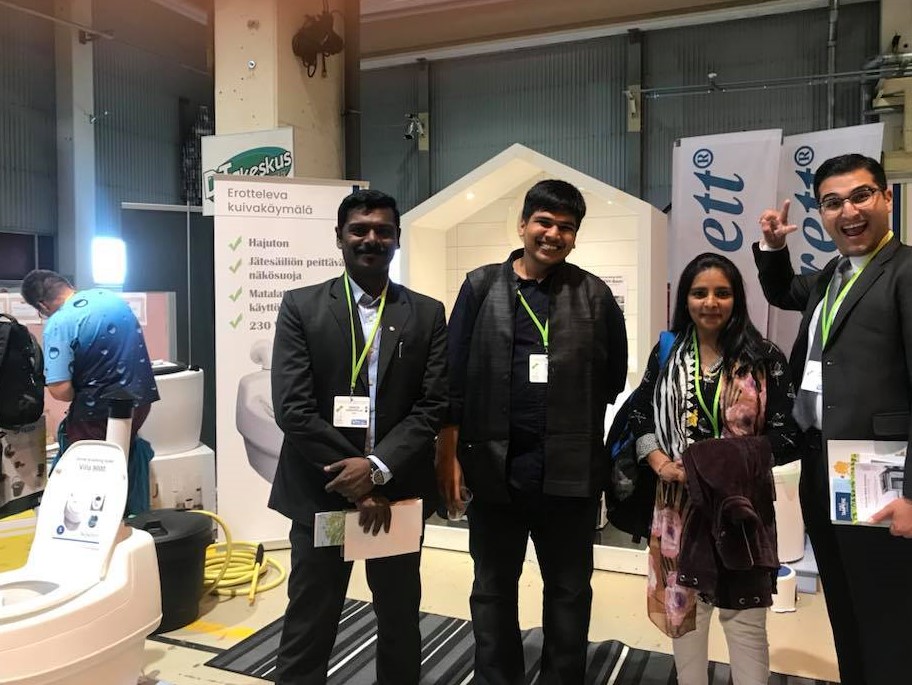
New intern working on fly larvae composting
Meet Panav Gupta – the group’s latest intern from India who is currently working with the black solider fly team. During his bachelors program in civil engineering, Panav was very interested in the field of waste management, especially the potential and economic outlook of using Black Soldier Fly Larvae (BSFL) for treating various types of waste. He is visiting our group at SLU for a two month long internship that began this July. During this time, he will learn about rearing and using BSFL for treating mussels and pig feed as well as understand the prospects of using BSFL for treating lignocellulosic biomass like rice straw – a possible solution for the problem of stubble burning in North India. PC: Giulio Zorzetto
PC: Giulio Zorzetto
Crispy fried black soldier fly larvae!
After rearing about 10.000 larvae on food-graded feed (toast bread) it was time for the big harvest at our greenhouse! After purging and freezing the larvae, we seasoned portions of them with either garlic, lime juice, onions, mint, vinegar, chilli, salt or olive oil and let them soak over night. The result was absolutely amazing – fried for about 5 mins at medium heat, the larvae turned very crispy and added a perfect note to the rest of the meal. They were also enjoyed as snack, just like a bag of chips. Coming in different flavors, you could almost not stop munching on them! 



